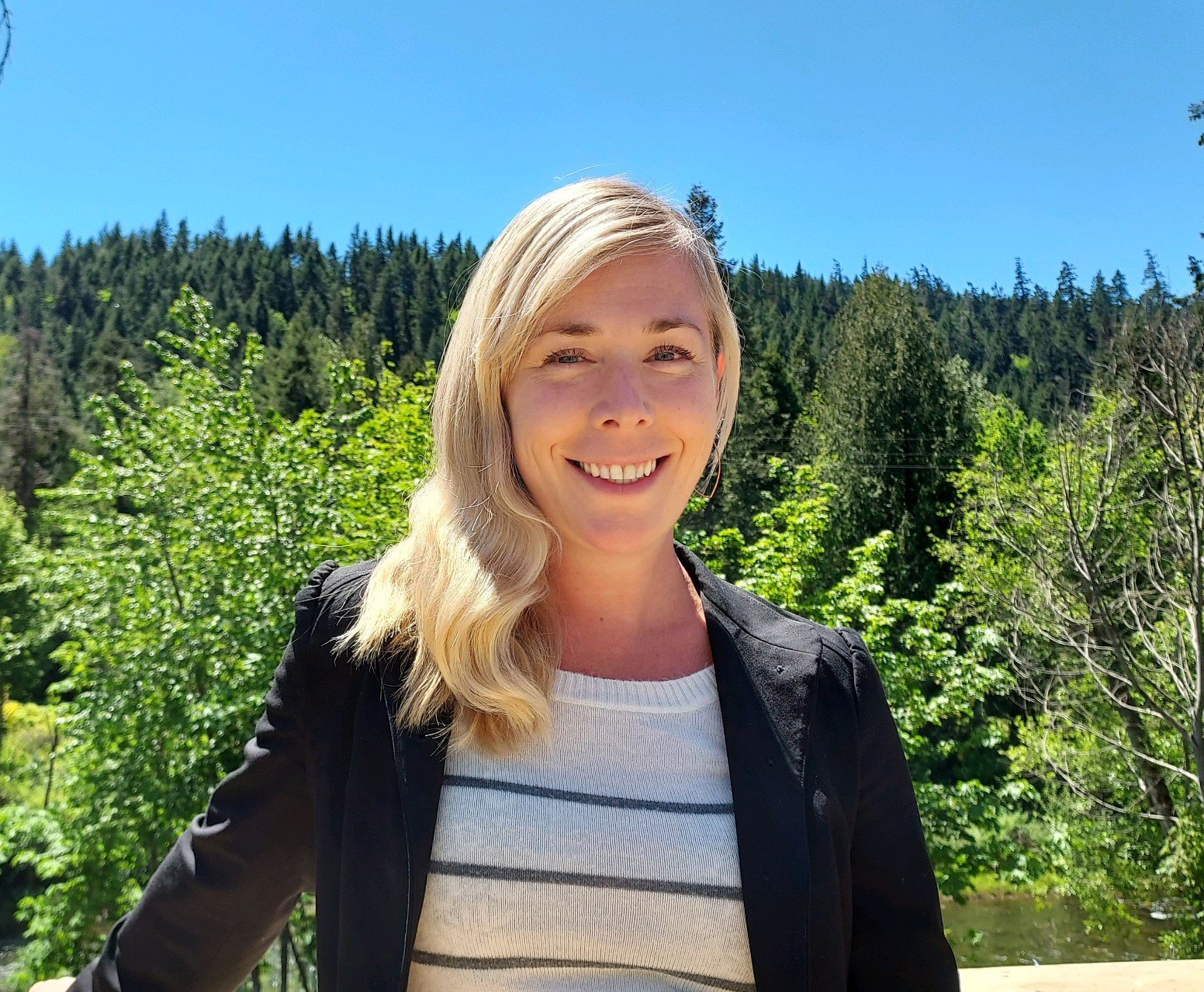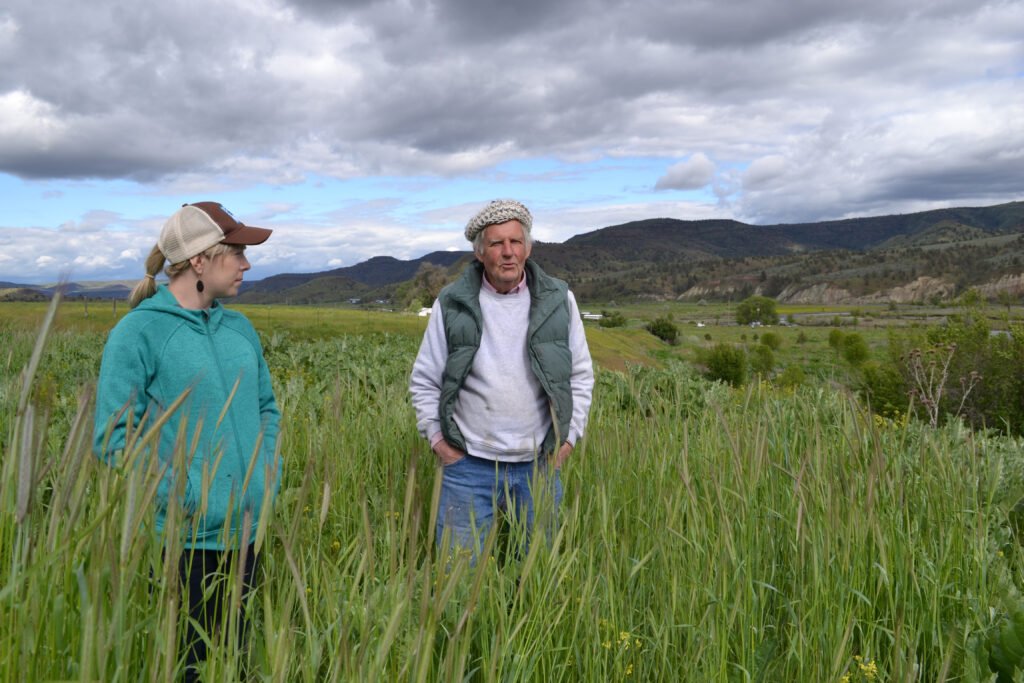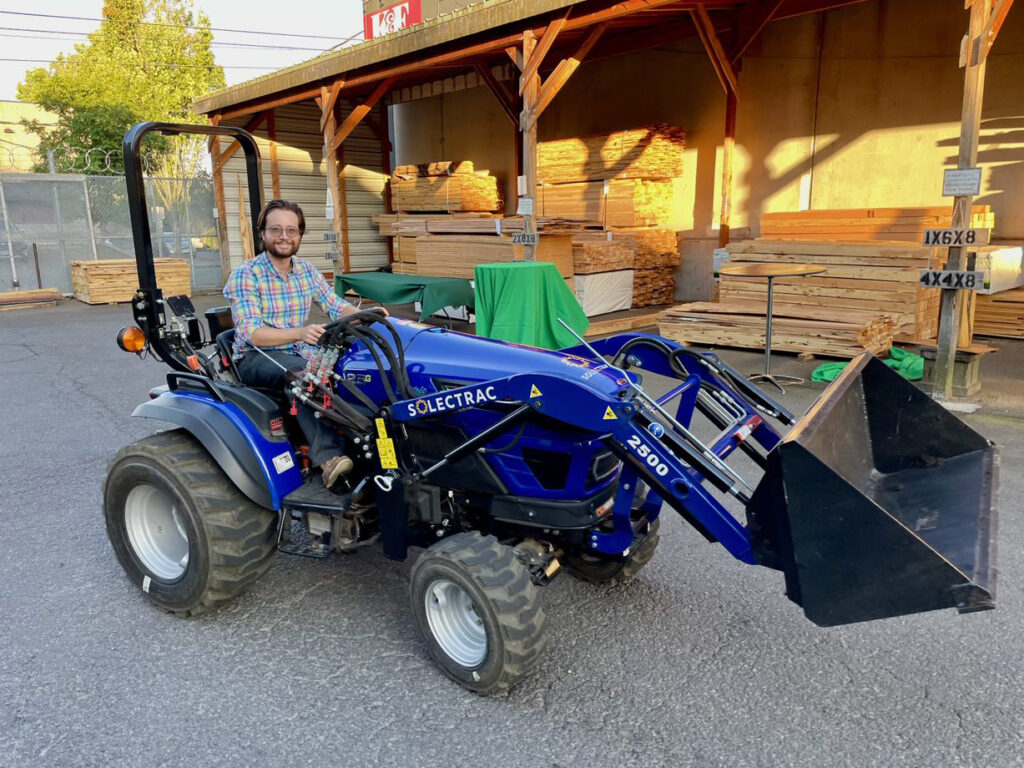
This is part of a series of blog posts amplifying community voices.
Sustainable Northwest takes a holistic approach to natural resource conservation. Its work focuses on forests, water and rangelands – all of which have an intersection with energy. Rapid changes in energy systems, like increased energy efficiency and renewable energy technologies, are making sustainability more accessible than ever before.
But for Bridget Callahan, senior energy program manager at Sustainable Northwest, this work wouldn’t be possible without the help of partners.
“At the end of the day, it’s really about relationships and partnerships. That’s the secret sauce, the reason why we’re successful in what we do. The foundation of everything we do is strong partnerships,” she said.
Energy Trust will help host Sustainable Northwest’s seventh annual Fall Energy Symposium on Oct. 17-19 in Umatilla County. Here we talked with Callahan about the challenges of sustainability and how her team is creating a more equitable future.
Q: What does “sustainability” mean to you and the community you serve? How does energy play a role?
I love this question because sustainability gets tossed around a lot, and I appreciate the opportunity to pause and think about what it means to our organizational mission. In the simplest terms, it’s finding ways to live lighter on the planet. It is the philosophy that what we do today is self-sustaining 10 years, 50 years, or 100 years from now in a way that balances our natural resources. I think of it as the golden rule – do things that everyone else can do also.
We demonstrate that in a variety of ways at Sustainable Northwest. Energy has opened doors for new communities to participate in the clean energy transition. Barriers are being reduced thanks to all kinds of technological innovations and policy changes. Everyone can play a role in the clean energy transition and practice sustainability.
Q: How has sustainability changed over the last five or 10 years?
It’s more accepted that the way we’ve been managing natural resources in the last 50-100 years is not viable. We’re seeing the effects on our land every day. Climate change can be so polarizing, but when you take a moment and think about the land you live on, you have been impacted – whether your rivers are drying up, threats of wildfire are at your door, or you have experienced persistent drought – you see it and you feel it.
I think that resilience is top of mind for everyone. Recently it has especially hit home in Oregon. We’ve all felt the effects of a changing climate. What gives me hope is the rapid transformation of our energy systems. Gone are the days of large, distant power plants hundreds or thousands of miles away that keep your lights on. We’re starting to see the value of what distributed energy resources can do for the community. When we harness our own local energy resources, there’s a myriad of benefits that come with that beyond just being more sustainable. Local energy development brings workforce and economic development opportunities, it increases the tax base that supports schools and emergency services, and it increases the resilience of your community.
Q: What are the biggest challenges Sustainable Northwest has faced in advancing sustainability efforts?
Our work is inherently challenging because we go where there’s need. We work in communities where access to programs, capital, internal capacity and technical assistance are all barriers. We go where there is need and where we’ll have the biggest impact.
Of course, that presents a lot of unique challenges along the way and there’s no cookie-cutter approach. With the right amount of momentum within a community, we can bring a lot to the table and provide long-term, lasting impacts for those communities beyond just a project or a program.
Q: Sustainable Northwest serves communities throughout Oregon, including rural communities. What are some of the long-term benefits you help provide to these communities?
We say we “work at the nexus of the environment, the economy and the community” and we’re always finding solutions that provide triple bottom line benefits for communities – not just the conservation values alone. I think that’s so important because we also invest in people. Long after a program or a project is developed, we are still there. We invest in the people to carry on and continue to drive natural resource solutions that work for people and nature. That provides longevity and makes us a unique organization.
Q: What do you wish everyone knew about this work?
I take a lot of pride in the fact that the work we do is generational. When we’re invited into a community we stay for as long as we’re asked and have the resources to do so which is unique. We’ve been around since 1994 and our work is very place based. We’ve been working in the Klamath Basin for decades and I think that continuity, that consistency of sticking with it through good and challenging times has really contributed to our reputation as a trusted and respected partner.
This work takes time and I often have to remind myself of that.
Q: What is on the horizon for Sustainable Northwest?
We’re excited about several upcoming programs and services. Our regenerative ranching program provides opportunities around soil health, water conservation and carbon sequestration. We’ve done a lot more work around on-farm clean energy development and now have a full suite of services we can provide for Oregon’s farming community. With so many things that are out of farmers’ control, energy is one of just a few things they have agency over. So, we launched our electric tractor/rural electrification project, with electric tractors rotating to farms across the state including a significant amount of field testing and data collection. We’re going to be folding in new electric heavy equipment technologies while also finding opportunities for energy efficiency and renewable energy to improve their bottom line and reduce dependence on imported and volatile fossil fuels. Stay tuned for some exciting updates this coming year!
One of the things that I’m particularly excited about in the energy program is expanding our work supporting tribal energy sovereignty. It’s incredibly fulfilling to be able to support tribes in utilizing their own energy resources whether that’s installing solar and storage on tribal facilities or through strategic energy planning.
Since 2015, we have convened the Making Energy Work for Rural Oregon coalition made up of rural clean energy leaders driving innovative projects and programs in their community. This year, several members of the coalition came together to form a Policy Committee focused on identifying community energy barriers and advancing practical solutions. We are working with partners and legislators to bring new voices to the policy table. This work ensures that the clean energy transition is achieved equitably and benefits both rural and urban communities alike.


